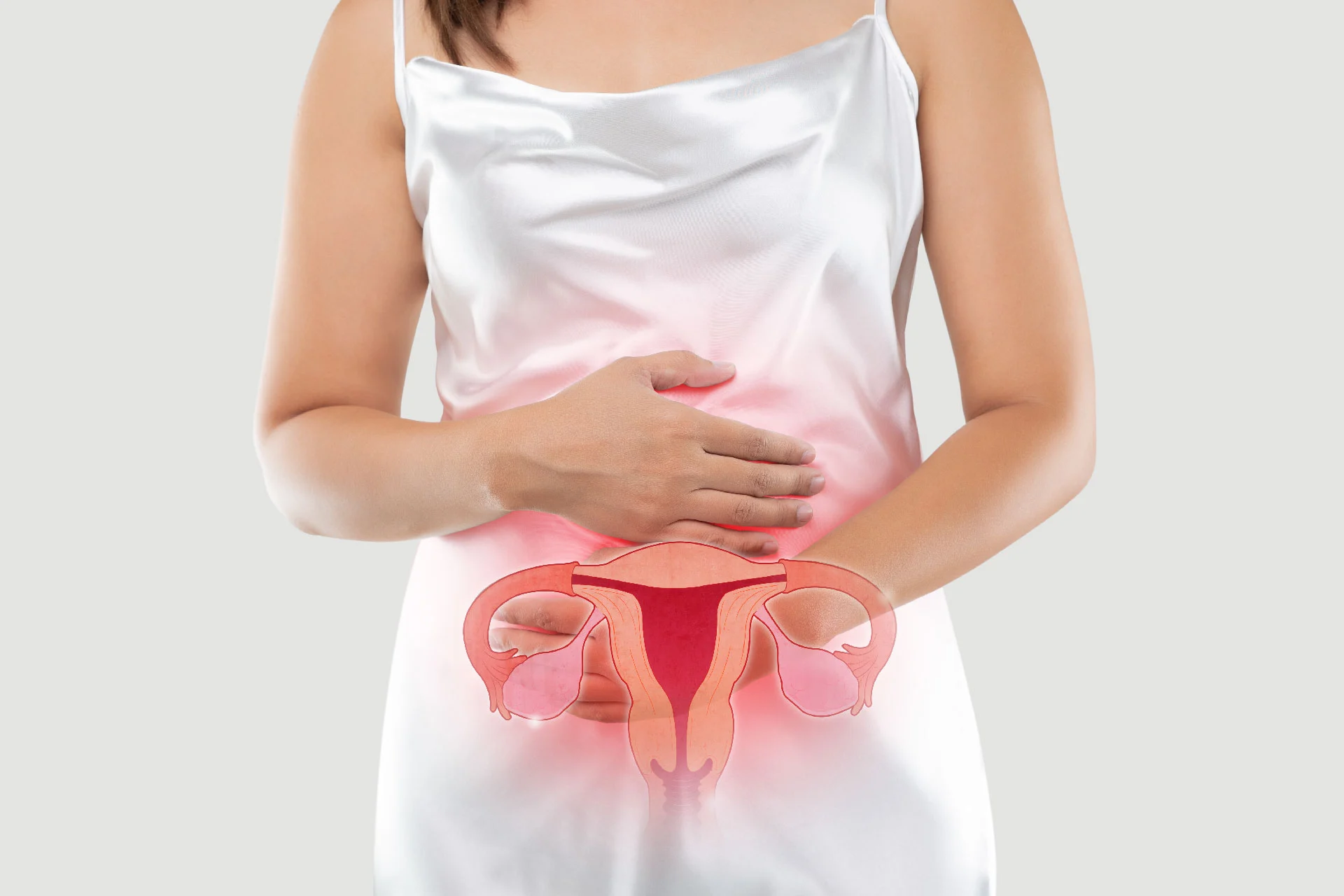Gynaecologist and Obstetrician | 4 min read
Breastfeeding Benefits for Mother's Health: What is the Psychological Impact?
Medically reviewed by
Table of Content
Key Takeaways
- Breastfeeding and maternal mental health are closely interlinked
- Breastfeeding helps build an emotional bond between mom and baby
- One of breastfeeding benefits for mother’s health is reduced stress
Breastfeeding is a beautiful process that creates an intimate relationship between the mother and baby. There are many benefits of breastfeeding for both the mother and baby. One of the most important advantages is that the baby develops a strong immune system and is prone to minimal gastrointestinal ailments. This results in reduced hospital visits.
The main reason for all these benefits is that breastmilk is abundant in nutritional components, enzymes, antibodies, and antioxidants derived from the mother. While it is beneficial for the baby, it is the same for the mother.
What are the nutritional benefits of Breastfeeding?
Here are a few benefits of breastfeeding your baby:
- It is simple for your baby's developing stomach and intestines to digest
- It encourages infants to gain weight in a healthy way
- As your baby grows, it adapts to meet its changing nutritional requirements
- It contains the ideal proportions of vitamins, protein, sugar, water, fat, and other nutrients for your baby's growth
- It has ingredients that naturally calm your baby
Some of the breastfeeding benefits for a mother’s health can be summed up as follows,
- Faster loss of body weight post-delivery
- Minimal chances for postpartum depression
- Faster contraction of the uterus to its normal size
- Reduced chances of urinary infections
- Minimal postpartum bleeding
Apart from these, there are many psychological effects of breastfeeding for a mother. Read on to learn how breastfeeding and a mother’s mental health are connected.
What are the top benefits of Breastfeeding?
Helps the uterus contract
Your uterus increases significantly throughout pregnancy, going from the size of a pear to nearly taking up the entire area of your belly. During labour, your body produces large amounts of oxytocin to aid in delivery and less bleeding. In addition, your uterus goes through a process known as involution after delivery with the aid of oxytocin, which aids in its return to its prior size. This process is aided by the pregnancy-related rise in the hormone oxytocin.
Similarly, breastfeeding causes a rise in oxytocin as well. It promotes uterine contractions and lessens bleeding, which aids in the uterus expanding back to its original size. Additionally, studies have demonstrated that moms who breastfeed typically experience less postpartum blood loss and uterine involution that is more rapid. [1]

Reduces stress levels and lifts mood
This is one of the major factors linking breastfeeding and mental health. Inflammation happens when your body is stressed after delivery. Inflammation is how your body responds to stress, and if left unnoticed, may lead to depression. Breastfeeding helps in lowering your inflammation thereby reducing the risk of heart diseases and diabetes. Low stress levels help in creating a positive mood by reducing anxiety in new mothers. However, in women experiencing depression, breastfeeding may prove to be an ideal alternative to combat depression. However, do talk to your physician in such cases, as you may be advised not to use anti-depressants. These can interfere with your milk supply. [1,2,3]
Improves hormone levels in the body
The body produces two hormones known as prolactin and oxytocin when you breastfeed. Oxytocin creates a soothing effect and helps develop an emotional bond with your baby. As the baby suckles, Oxytocin releases creating positive vibes for the mother. This nurturing feeling helps you to forget everything else and focus solely on your baby. You feel a strong sense of closeness and attachment with your child because of breastfeeding. [1,3,4]
Additional read: 5 Hormone Tests for Females to Know and Understand
Promotes better sleep
Sleep is essential for new moms. Amongst all breastfeeding benefits for mother’s health, promoting healthy sleep in moms is the most crucial one. The presence of both oxytocin and prolactin hormones helps promote healthy sleeping patterns in both moms and babies. [1,5]
Increases the physical and emotional bond between mother and baby
Taking into account different psychological benefits of breastfeeding for mother<span data-contrast="auto">s, the bond created between you and your baby is incomparable. While you breastfeed, you hold your baby close to the bosom, which helps increase the skin-to-skin contact. As per science, the way you stroke and hold your baby during the process enhances the affinity between you and the baby. Such affectionate bonding helps in minimizing behavioral and social problems in kids as they grow up. Another advantage is that you tend to understand your baby’s cues well, which in turn helps in shaping your baby’s early behavioral patterns. [1]

Helps in boosting overall serenity and health
When mothers breastfeed their babies, it helps them sleep peacefully because of the presence of prolactin hormone present in breast milk. As a result, the emotional and physical wellness of the baby gets better. In such instances, your baby feels happy and cries less thereby minimizing the chances of any illness. [1]
Lowers your risk of disease
Breastfeeding appears to offer long-term protection against cancer and several other disorders. For example, breast and ovarian cancer risk is inversely correlated with a woman's duration of breastfeeding.
Breastfeeding also reduces a woman's risk of:
- Arthritis
- High blood pressure
- Blood fat levels
- Cardiac diseases
- Diabetes type 2
Aids in weight loss
You may have heard this one before. While some women appear to put on weight while breastfeeding, many lose it without effort. In fact, breastfeeding burns more calories. Compared to non-lactating mothers, you'll probably notice an increase in fat burning after three months of nursing, according to a reliable source.[2] However, there is little difference.
What is the importance of Breastfeeding?
All parents must make a significant decision regarding breastfeeding. It's wise to give yourself some time to consider how nursing impacts your infant. Spend some time learning about the advantages of breastfeeding before making a decision. Breastfeeding has a lot of health, physical, and emotional advantages. Additionally, it provides your toddler with all the vitamins, nutrients, and antibodies they require to develop a robust immune system. The following are some of the main advantages of breastfeeding:
- It is simple to digest and is nutrient-rich for your infant
- It strengthens your baby's immune system and lowers its risk of developing certain diseases
- It's affordable
It's acceptable for some people to breastfeed only partially or not at all. There are numerous formula choices that will aid in your child's growth. If you need assistance making a decision, consult the pediatrician for your child.
Some tips for Breastfeeding
The ABCs of breastfeeding, as they are known, will assist both you and your baby in becoming accustomed to the procedure:
Awareness
Keep an eye out for your baby's hunger cues and feed them whenever they occur. It is referred to as "on-demand" feeding. In the first few weeks, you might breastfeed eight to twelve times each day. Hungry infants may reach for your breast, make sucking noises, or move their mouths. Please do not wait to breastfeed until your child cries, indicating they are too hungry.
Being Patient
Feed your infant as long as they want to each time. Don't rush your baby through meals. Typically, infants nurse from one breast to the other for 10 to 20 minutes.
Comfort
This is vital. Your milk will likely "let down" and flow more readily if you are relaxed while nursing. Before you start breastfeeding, make yourself comfortable by using pillows as needed to support your arms, head, and neck, and you can add a footrest to support your feet and legs.
What are the difficulties with Breastfeeding?
Nursing a baby has a lot of challenges. New mothers may need some time to get accustomed to it. Following are the problems new mothers usually face:
Frequent feeding sessions
In the first few weeks, your baby will probably wake up in the middle of the night to eat multiple times a night. The tummy of your infant is about the size of a coin. Over the first few weeks, they require modest, frequent feedings, and you have to feed the baby at least eight to twelve times a day.
Desire to use substitutions
Despite what you may believe, you will produce more milk than you expect. For an accurate assessment, you can consult a lactation expert. For the first four to six weeks after giving birth, it is advised to new mothers to refrain from using bottles, pacifiers, or pumps since they will interfere with the supply and demand-driven system. In addition, it's crucial to avoid using formula as a substitute for breastfeeding.
Latching problems
When your infant is not latching properly, breastfeeding can also be difficult. Better milk transfer and reduced pain and discomfort are benefits of a strong latch. After two weeks of feeding, if your nipple pain persists for more than two minutes into the feeding, seek assistance from a board-certified lactation consultant.
There are many benefits of breastfeeding and it avoids diseases like breast cancer. But one of the important ones is how it affects the mother’s mental health. Breastfeeding and maternal mental health are interlinked and doing so give the mother a feeling of satisfaction that her baby is healthy and happy. To ensure you do not face any hurdles during breastfeeding, book an appointment with a specialist on Bajaj Finserv Health. This way you can receive the necessary guidance to start your breastfeeding journey hassle-free.
References
- https://www.ncbi.nlm.nih.gov/pmc/articles/PMC6096620/
- https://tghncollections.pubpub.org/pub/8-the-psychological-effects-of-breastfeeding/release/2
- https://ccli.org/2017/10/psychological-benefits-of-breastfeeding/
- https://www.healthychildren.org/English/ages-stages/baby/breastfeeding/Pages/Psychological-Benefits-of-Breastfeeding.aspx
- https://www.ncbi.nlm.nih.gov/pmc/articles/PMC4811943/
- https://www.ncbi.nlm.nih.gov/pmc/articles/PMC8227540/
- https://www.ncbi.nlm.nih.gov/pmc/articles/PMC4146528/
Disclaimer
Please note that this article is solely meant for informational purposes and Bajaj Finserv Health Limited (“BFHL”) does not shoulder any responsibility of the views/advice/information expressed/given by the writer/reviewer/originator. This article should not be considered as a substitute for any medical advice, diagnosis or treatment. Always consult with your trusted physician/qualified healthcare professional to evaluate your medical condition. The above article has been reviewed by a qualified doctor and BFHL is not responsible for any damages for any information or services provided by any third party.





